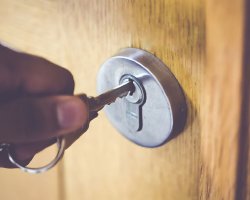The Top Ten Social Benefits of Not Drinking

When I first got sober, I thought my social life was over. I was only 25 years old, but my drinking had already taken me to jail, detox, and the courtroom multiple times. I was on the fast track to a life of alcoholism, and after an intervention from my family, I knew it was time to change. I thought I would be losing out on social life, but actually, I was allowed to create a much healthier social life built upon real relationships instead of substance abuse.
Many people have the false idea that a life of sobriety is boring, but if you’re doing it right, that couldn’t be further from the truth. In a few months, I will be celebrating my ninth year of sobriety, here are just a few of the social benefits that I have experienced during that time due to not drinking.
1. Improved relationships.
One of the significant benefits I have experienced from living a life of addiction recovery is the benefit of improved relationships. Pretty much every relationship of importance in my life has been enhanced due to my sobriety. The only connections that suffered from my addiction recovery were based on alcohol and were not healthy or functional in the first place. I ended up cutting ties with the people who were toxic and unsupportive of my recovery and have never regretted doing so. My relationships with my family members and my real friends have never been as strong as now, mostly because I am not living a life of active addiction.
2. More money for activities.
Because I am no longer spending all of my money on drugs and alcohol, I now have more money to spend on fun activities. It is nice being able to have the money to go out to the movies with my friends or grab lunch with one of my cousins and not have to worry about how I will be able to pay for my next drink. A life of sobriety has dramatically improved my financial well-being, and for this, I couldn’t be happier.
3. More energy.

A life lived between the rollercoaster of drunkenness and hangovers is pretty exhausting. When I was drinking, I remember days that would be wasted away due to being hungover. I didn’t have much energy for things that were beneficial to my life. It was a pretty sad way to live, but that’s just what seems to happen when you are addicted to drugs or alcohol; you put up with things you usually wouldn’t because you get stuck in a rut.
4. Improved accountability.
I hate to admit it, but I was a pretty flaky person when I was drinking. I had a hard time keeping up with my commitments and obligations. I wasn’t someone that you would call reliable. I didn’t want to be this way. It was just something that kind of happened when I was drinking all the time. It is sad and unfortunate that addiction causes people to prioritize their drug of choice over keeping their word. Over the course of my recovery, I have been able to re-establish myself as a person that is worthy of trust, who will follow through with my commitments.
5. Improved communication skills.
I had a tough time communicating my feelings effectively and respectfully when I was drinking all the time. I found this especially true when I was drunk. I wasn’t very good at communicating with others, and my relationships often suffered because of this. During my treatment program, I worked on redeveloping the communication skills that had degraded due to my drinking. I can now say that I can effectively communicate with the people in my life, but I am also much better at it than I ever was, even before my drinking problems.
6. More time.
Now that I am free from the cycle of addiction, I have a lot more time to invest in the important relationships in my life. When I was living a life consumed by alcoholism, that was pretty much what my life revolved around. I didn’t have much time to pursue hobbies, invest in relationships or do anything very productive. It is a little embarrassing to admit all of this, but I have learned that honesty is essential. Anyone who is or has struggled with addiction themselves will understand where this is coming from.

7. No more embarrassing drunken behavior.
I can’t even tell you how many times I woke up hungover and had to hear embarrassing stories of things I had said or done the night before that I barely remembered. It was a terrible feeling that I often experienced. For most people, this would be enough to get them to either stop drinking or start drinking more responsibly, but not me. That’s the reality about addiction, it can destroy a person’s life, and until they can fully handle their addiction, they keep on going back for more. I am grateful that I no longer have to deal with this because, honestly, it was a pretty depressing way to live.
8. The ability to be fully present.
I’ve often repeated this, but my sobriety has given me the ability to be genuinely present in my surroundings with the people I love. Before I quit drinking, I would either be drinking or thinking about drinking. Alcohol consumed my thoughts, and I wasn’t fully engaged with the people around me. Now that I am sober, I can participate in meaningful conversations and be there for the people I care about the most.
9. The ability to be a better friend.
My alcoholic behavior made me someone that even I wouldn’t want to have as a friend. It makes me cringe to say this, but I wasn’t someone I would want to hang out with. I don’t like the person my drinking turned me into, and many other people didn’t like it either. I ruined friendships and burned bridges because of my drinking. Now that I am sober, I am proud of who I have become, my actions, and my ability to be a good friend.
10. Improved confidence.
There is a commonly believed lie that drinking can make a person feel more confident in social settings. While there may be some truth to the notion of “liquid courage,” in my personal experience of struggling with addiction, alcohol destroyed my confidence instead of building it up. That is because it led me to make poor decisions, deteriorated my health, stole all of my finances, and took away my pride. Living a life of sobriety has provided me with the confidence that I often looked for but could never find at the bottom of a bottle.
Perhaps the most important thing to remember from all of this is that living a life of recovery doesn’t mean the end of having a social life. It may not be easy in the beginning to navigate interacting with other people without the use of drugs or alcohol, but with time things will become easier. If anything, living a life of recovery offers a person more opportunities for genuine social interaction with friends and loved ones.


 ®
®